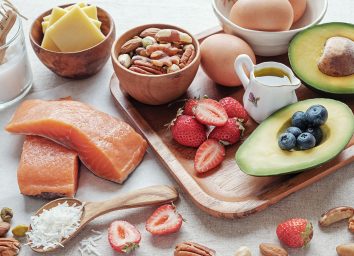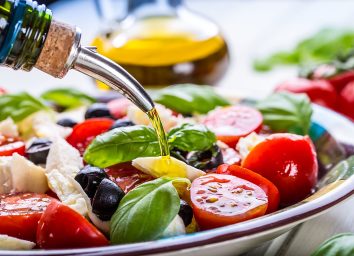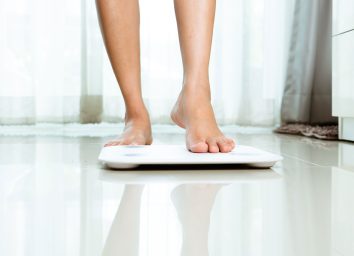10 Easiest Habits That Will Guarantee Weight Loss
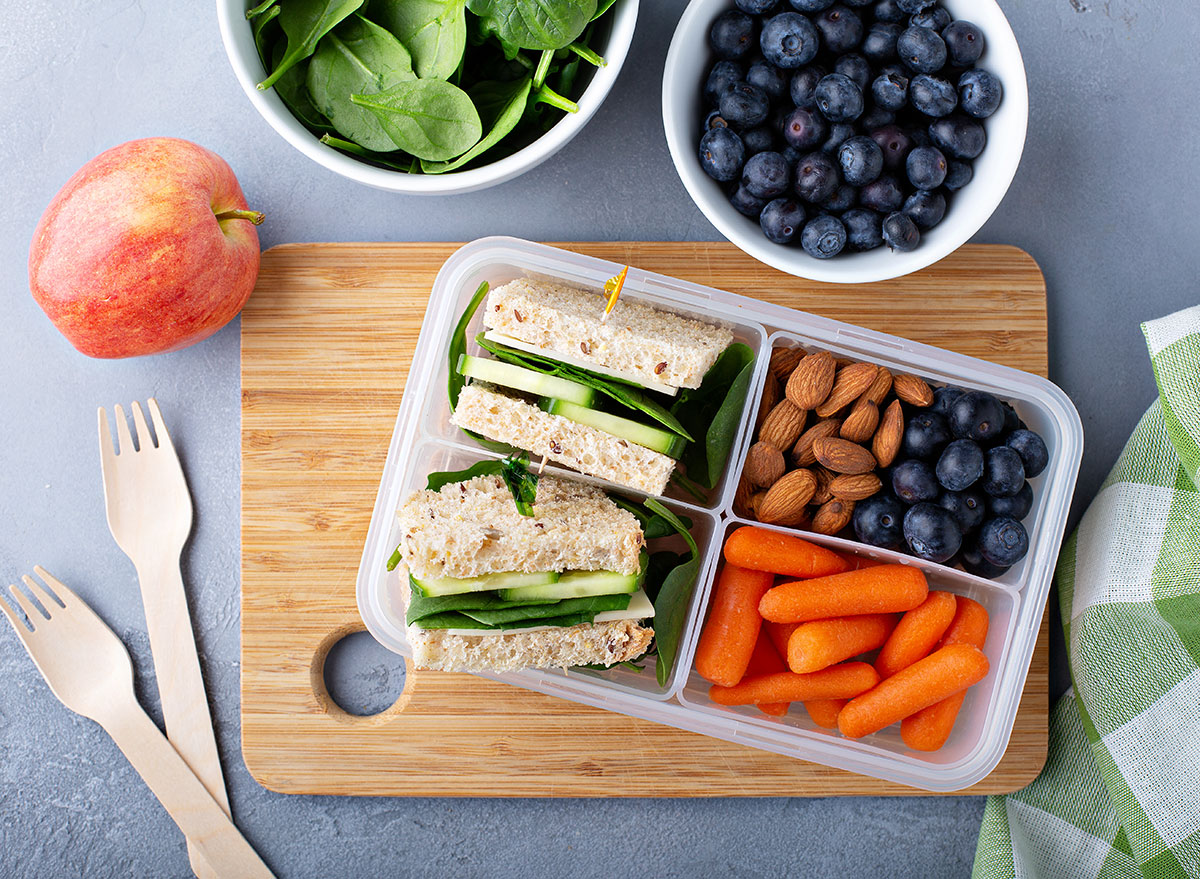
Losing weight is no picnic, but you don’t actually need to completely overhaul your diet and lifestyle to reach and maintain a healthy weight.
“Many times, people think that they need to make big changes to see big results,” says Dani Spies, Happy Egg ambassador and founder of the health blog Clean & Delicious. “In actuality, it’s the small day-to-day practices that make the greatest impact on your health and wellness.”
Yes—it’s a whole lot easier than you may think! With that in mind, here are 10 small ways that you can make a big difference in your journey to better health. Adopt these habits, and you’ll soon drop that unwanted pounds. And be sure you’re adding these 21 Best Healthy Cooking Hacks of All Time to your list of good-for-you habits that lead to weight loss!
Eat real food.
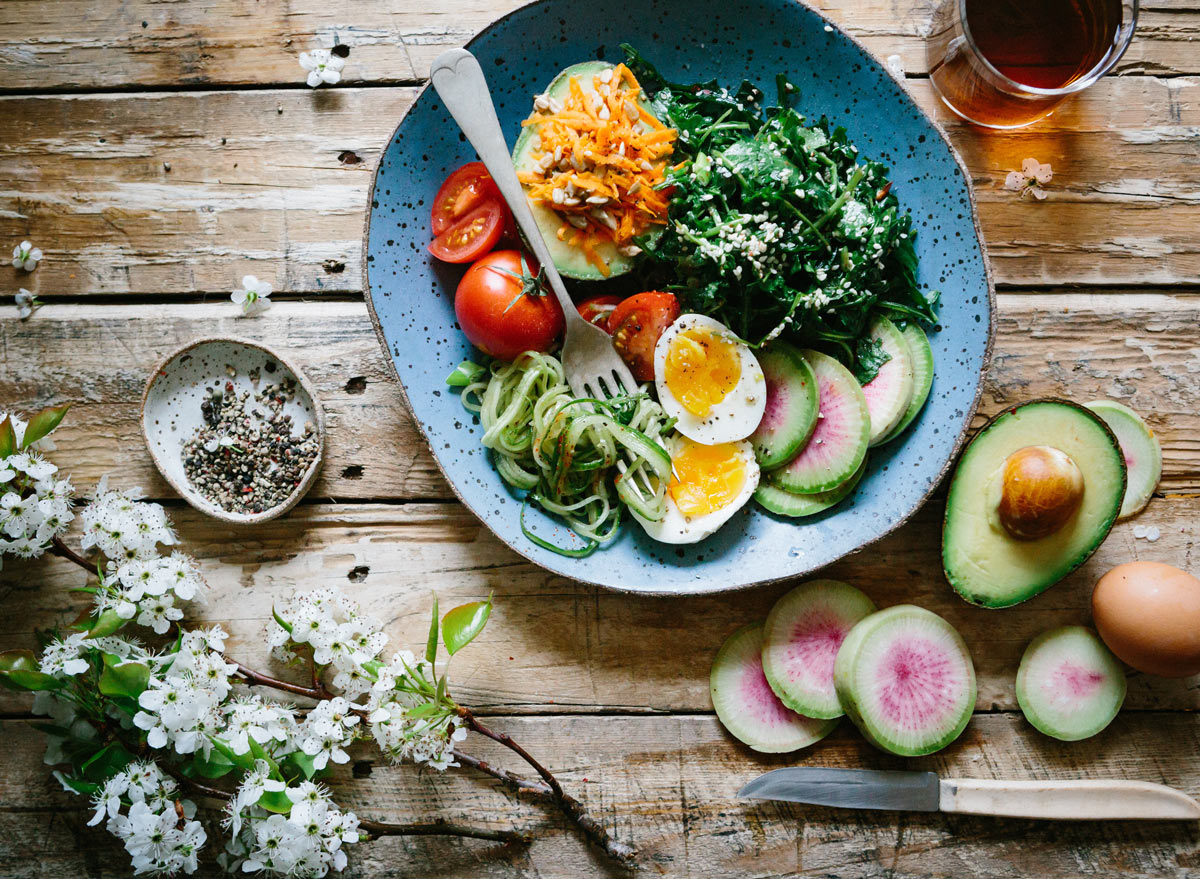
There are loads of lower-calorie options on the marketplace today, from low-fat cheese to low-carb chocolate-flavored meal-replacement bars. But when you’re craving rich dark chocolate, a chalky, sugar-free alternative just isn’t going to cut it. In fact, eating a poor substitute might make you more likely to keep eating in an attempt to fill the void.
“I always encourage you to eat real, whole foods rather than low-fat, low-calorie foods that leave you feeling unsatisfied,” says Spies.
Have a square of dark chocolate for an afternoon pick-me-up, a slice of full-fat cheese on your veggie sandwich, or one scoop of rich ice cream for dessert. Savor it, don’t beat yourself up about it, and balance it with a variety of healthy whole foods.
Plan your meals.
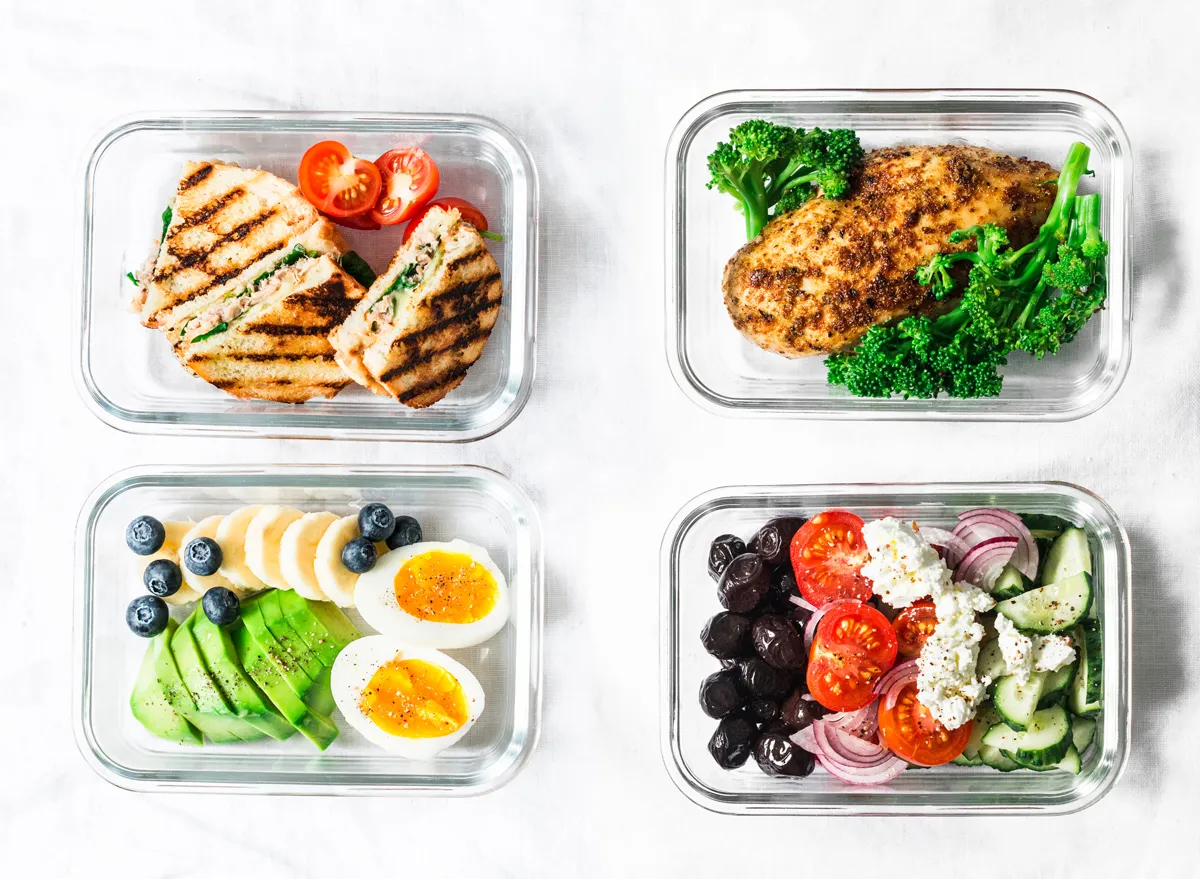
You know that feeling of going to the grocery store hungry, only to wonder, once you get home, why you bought every snack food under the sun? Trying to plan and cook a meal when you’re already hungry often results in similar scenarios: quick meals devoid of nutrients like boxed mac and cheese, or resorting to takeout.
“Cooking at home and eating out less is one of the best ways to reduce overall calorie intake since you have control over how much you use of different ingredients (such as oil, butter, sugar, condiments, etc.)” explains Dr. Josh Axe, D.N.M., C.N.S., D.C., founder of Ancient Nutrition and DrAxe.com.
Instead, set yourself up for success before you get hungry: make a weekly meal plan and grocery shop with your menu in mind.
Log your meals.

Keeping a food journal can help you get an overview of what you’re actually eating—and where there’s room for improvement. Axe suggests either keeping a written journal or simply taking photos of everything you eat before digging in.
“You’ll keep yourself accountable and also learn more about how much you’re eating, when, and why,” he says. “You might be surprised at patterns in your diet and how much more you’re actually consuming than you may have thought. For example, a food journal might reveal that snacking and drinking alcohol are contributing lots of sugar and calories to your diet.”
This habit is particularly helpful at the beginning of your healthy eating journey, but it can be interesting to do it occasionally, long after you’ve adopted these healthy eating habits. Consider journaling for a week every month to get a bird’s eye view of what you’re actually eating and where there could be room for improvement.
Looking for more helpful tips? Be sure to sign up for our newsletter to get daily recipes and food news in your inbox!
Use your hands and a scale to gauge portion sizes.
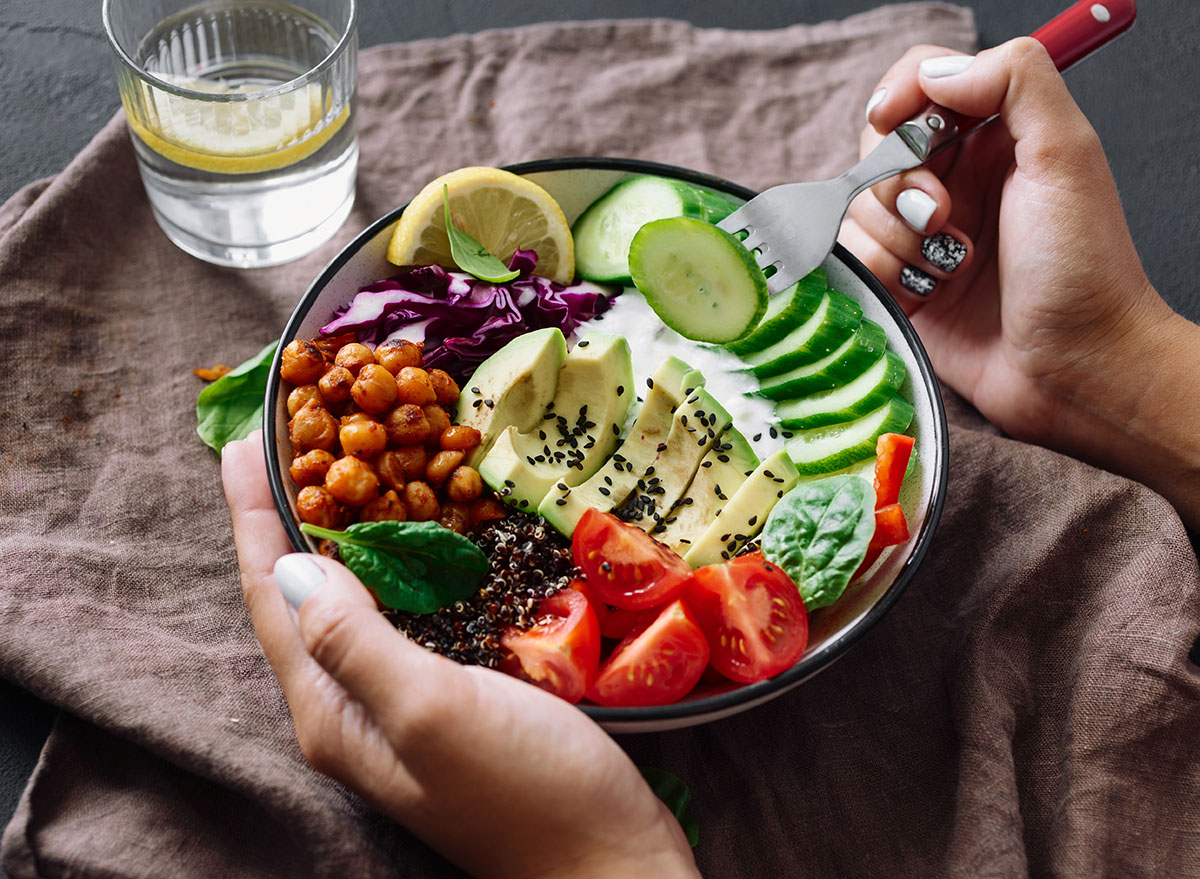
It’s easy to over-eat when you’re not used to appropriate portion sizes, explains Axe. When you’re first starting out, use a scale or measuring cups to gauge exactly how much three ounces of meat or a cup of rice is. Then, compare with your hands (palm, fist, fingertip) so that you’ll have a better idea of the right size in the future without having to break out any extra tools.
Explore a Mediterranean-style diet.

For Kate Geagan, Pompeian’s on-staff nutritionist and sustainable dieting expert, a Mediterranean-style diet rich in olive oil is the perfect way to lose weight easily—no gimmicks required.
“Not only does this eating pattern help shed unwanted pounds, but several landmark studies have found that it also helps people keep the weight off longer, including key areas such as reducing waist circumference and abdominal obesity,” says Geagan.
This is thanks in large part to the healthy fats present in olive oil and fish, not to mention the wide variety of fiber-rich plants and whole grains, which are low in calories and keep you fuller longer.
“Fiber helps to take up space in your stomach and keeps you full,” explains Axe, “plus it’s usually found in lower-calorie foods that are generally nutrient-dense, such as veggies, fruits, beans, whole grains, avocado, seeds, etc.”
Fill your plate with half plants.
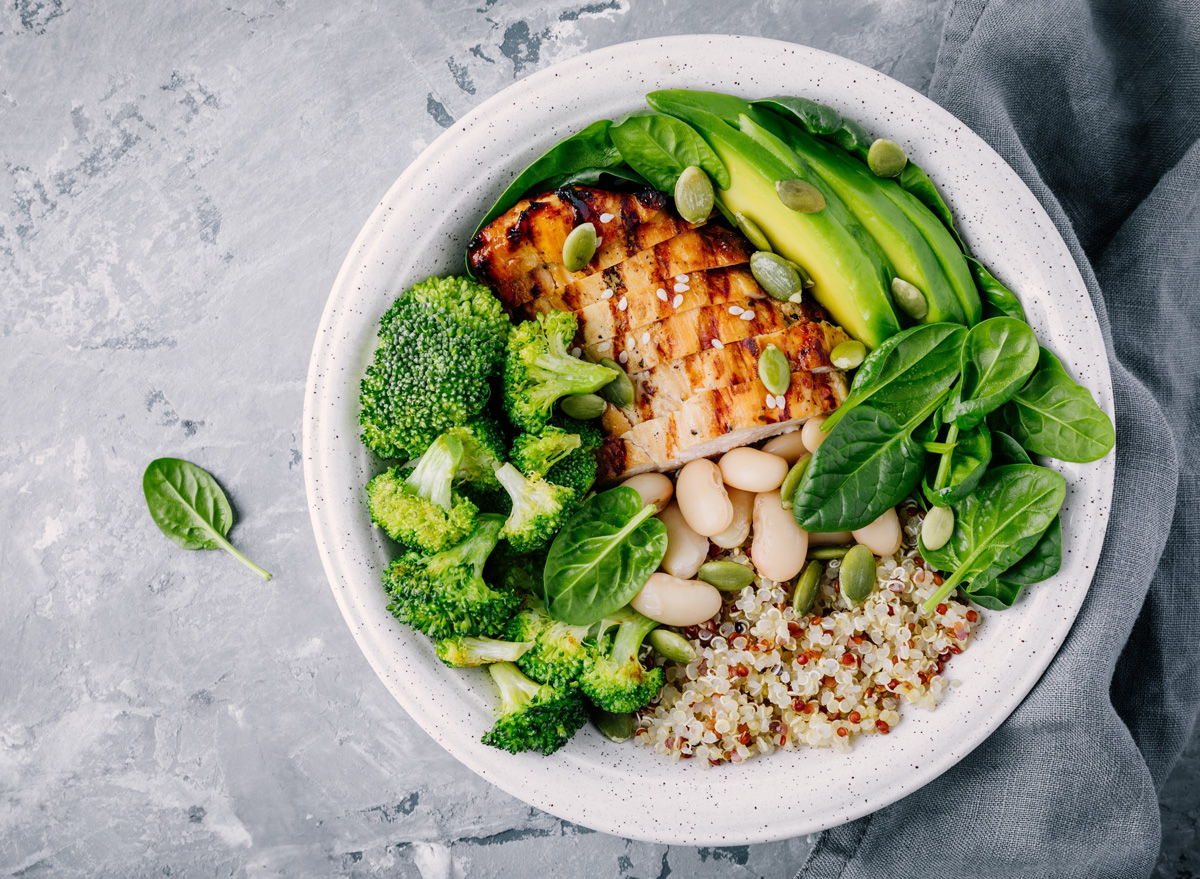
Speaking of which, when building your plate, consider allowing vegetables, salad, and fruit to take up half of the real estate, suggests Axe.
“This is a simple way to fill up on lower-calorie foods,” he says, “and a winning combination when it comes to keeping you satisfied for longer between meals.”
Stock family favorites.
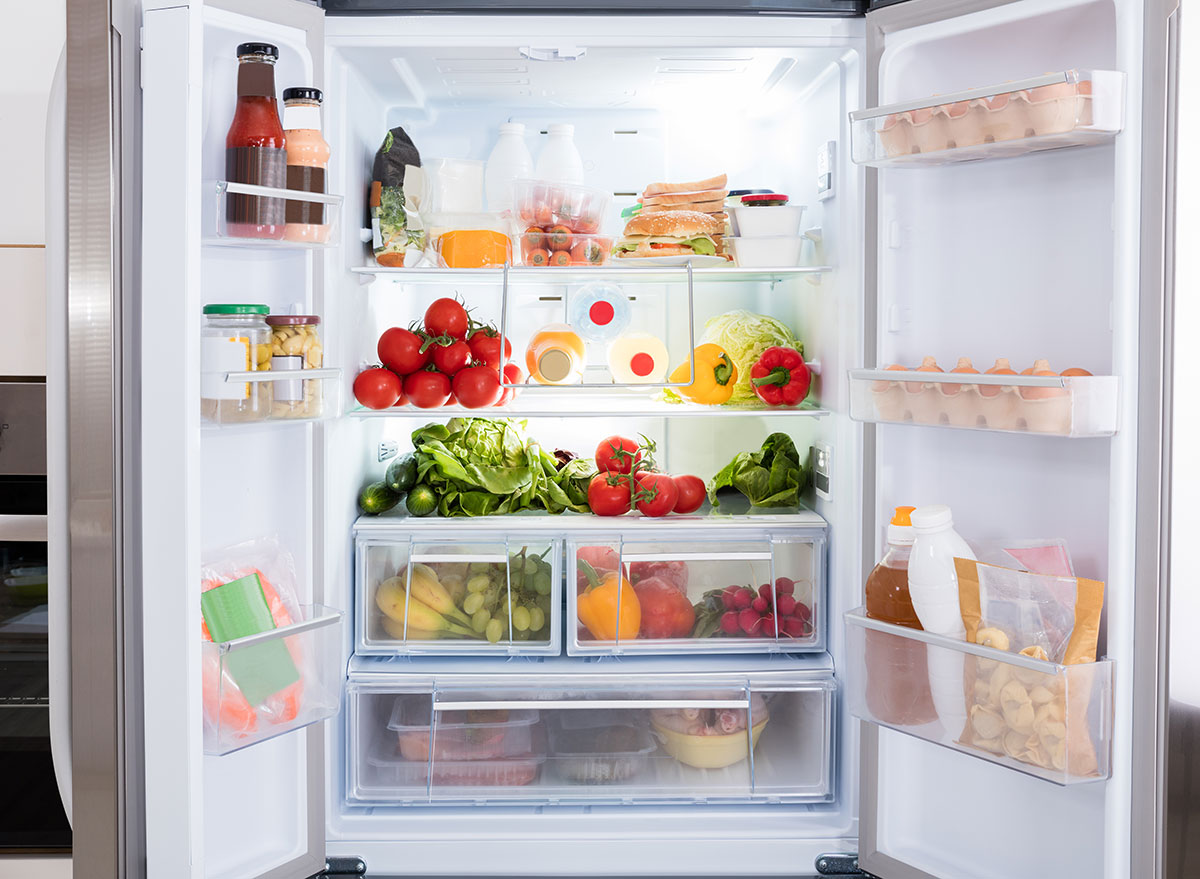
Variety certainly makes healthy eating more fun, but don’t be afraid to fall back on old favorites. For Spies, having a handful of go-to dishes in mind—the ingredients for which can always be found in your fridge, freezer, or pantry— is a great way to make sure healthy choices are always within reach.
“As you experiment and discover new foods and meals that work for you and that you really enjoy, put them in your back pocket and let them become go-to dishes that reappear in different ways in your daily and weekly rotation,” she says. “For my family and especially during these times as we cook at home more so than ever before, there’s a handful of ingredients I always have stocked in my fridge so I can pull together simple, delicious, and nutritious meals any day or time of the week.”
Her staples include sweet potatoes, leafy greens, canned beans, quinoa, brown rice, and eggs. Other staples that could work for your family might include canned tomatoes, canned tuna fish, or frozen shrimp. Keeping these ingredients on-hand—along with a well-stocked spice cupboard—means that you’re never more than thirty minutes away from a healthy, home-cooked dinner.
Sit down.

Satisfaction at mealtime isn’t just linked to what you’re eating—it’s also linked to how you’re eating it. Spies suggests making meals more pleasurable and mindful by making sure you sit down each time you eat.
“Don’t be afraid to further create a happy, enjoyable atmosphere around your food by either using plates that are special to you, picking fresh flowers for the table or playing your favorite music while cooking to set the mood—anything that allows more pleasure to flow into your home, kitchen, and life,” she says.
Drink water.

A lot of the time, a sensation you think is hunger is actually thirst! Don’t let yourself get confused: be sure you’re drinking enough water every day, which will aid in digestion and also keep you from mindless snacking.
“Staying hydrated by drinking water instead of sugary drinks (like juice, energy drinks, soda, sweetened teas, coffee, etc.) can help to keep hunger in check and supports digestion,” says Axe.
Most experts recommend a baseline consumption of water linked to your weight. To figure out your optimal water intake, take your weight in pounds, and divide in two: this is the number of ounces you should be drinking per day. So for a person weighing 180 pounds, 90 ounces of water per day is ideal.
You might also consider drinking water just before a meal, to help fill your stomach and reduce appetite and therefore food intake.
Brush your teeth after dinner.
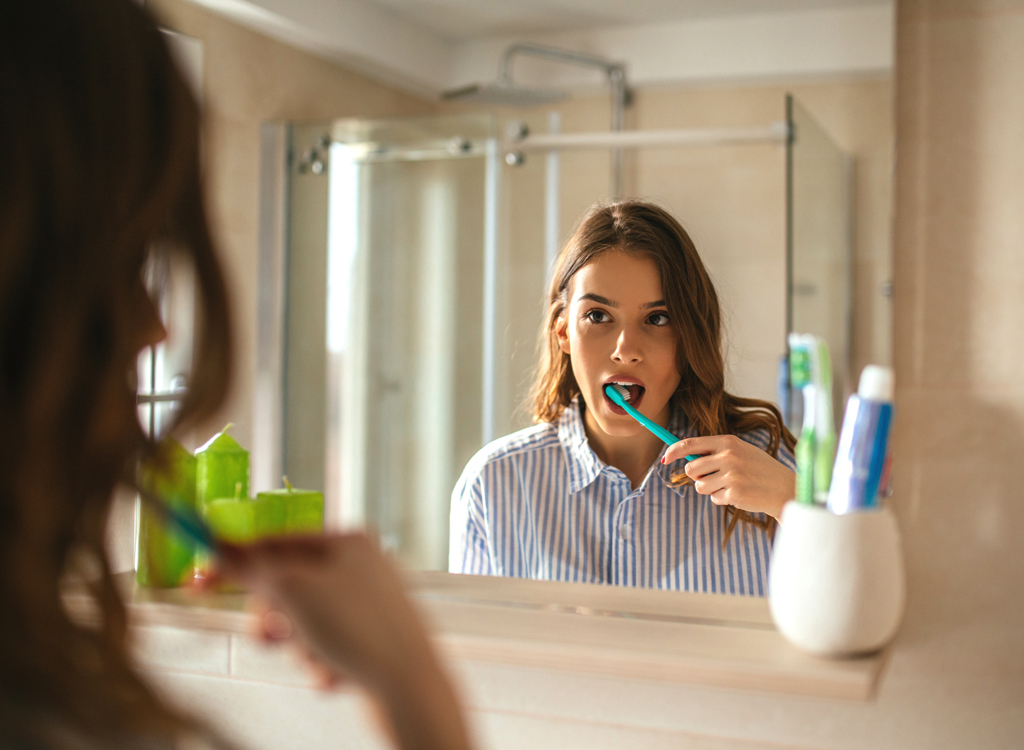
Mindless snacking in front of the TV can counteract all of that careful planning and healthy eating you did all day. Instead, consider brushing your teeth right after dinner to dissuade you from reaching for a snack late at night. Cutting out late-night snacking will also contribute to better digestion and better sleep, thus setting you up for success tomorrow!
